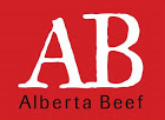Here we go….2016…hoping it’s a happy, healthy and prosperous year for everyone. Best wishes, but as we all know in reality, it’s not simply a perfect world where only good prevails. Without sounding philosophical, the fact is contrary to the modern day lexicon, “it’s (NOT) all good” but then, contrasts are really what make us appreciate the good, after all. Which, in a somewhat twisted way, is what I thought of the big “love in” or “it’s all good”, theme at the recent Environmental Summit in Paris. Much of the liberal media touted this summit as a huge milestone with equal hope for bringing about [real] change in carbon emissions. This optimism was reminiscent of Obama’s first term in office with so much hope riding on him and we now know how that turned out and faded away. Of course, in contrast, the conservative media viewed the summit’s apparent success, as being nothing short of a wealth transfer, filled with hypocrisy.
Yes, atop of the moral high ground being touted in Paris, before, during and after this photo op love in, there is another reality about the summit and that is, the environmental impact of such a meeting. Rather ironic for sure, but, look at the number of planes, trains and automobiles involved here. For instance, Al Gore (the rock star at the summit) and many others arrived courtesy of their private jets, which are, by the way, the worst carbon dioxide (C02) emitters amongst all modes of transportation. Obama and his 100 plus entourage of cooks, security people, speech writers, advisers and personal limousines flown in, left behind a very large carbon footprint. Our very own Justin, (such an annoying voice) Trudeau was accompanied by some 300 candidates to Paris. Not to forget many others who travelled by train or cars. Maybe a handful of delegates rode bike or walked there making them, the real environmental troopers. Overall, three thousand or so delegates made an impact on the environment. Consider the amount of food required to be delivered to the convention centre and various hotels. With this huge order, how much food waste was there? How much garbage did this produce? Paper products needed? Not to mention the steady stream of fossil fueled vehicles running both products and people here and there. Hypocrisy at its worst, but no, say the pundits. Bottom line is that we, in the developed countries of the world, will be paying a hefty price for what many feel are natural weather cycles occurring, not simply just attributing it to the burning of fossil fuels. The debate will continue until the earth’s temperature starts to decrease which some might remember was the buzz in the 80’s – ice age is coming? Once upon a time long before oil was discovered, there were vast glaciers covering the earth and behold, they receded as the earth warmed. Go figure.
Another curious situation, in the realm of the environment, taking place stateside is a movement called True Cost Accounting . If this gets legs and I suspect, in this whackadoo world of special interest groups gaining public favour, it will. It too will have a negative effect on food production as we know it. Essentially, it looks at the external costs of producing food that currently is not included on the price tag. Case in point, imagine a hamburger price that includes charges for heart disease (health), impacts from manure runoff into water systems (environmental), or worker injuries at meat processing plants (social). This line of thinking is out there and while it would be difficult to assign costs to particular products, it’s none-the-less insightful as to how this social and environmental movement operates, on different levels. Hopefully our industry’s sustainability statements will help in keeping this whackadoo kind of thinking on the side lines.



